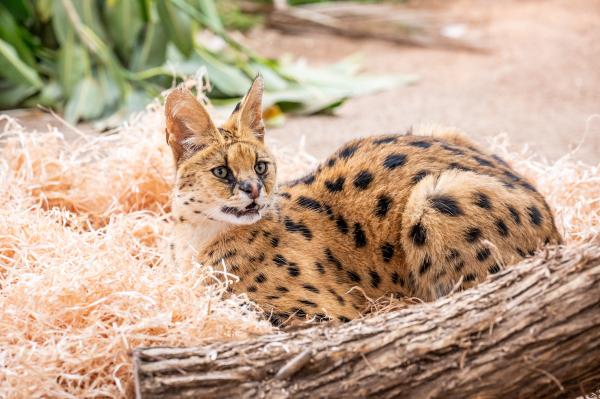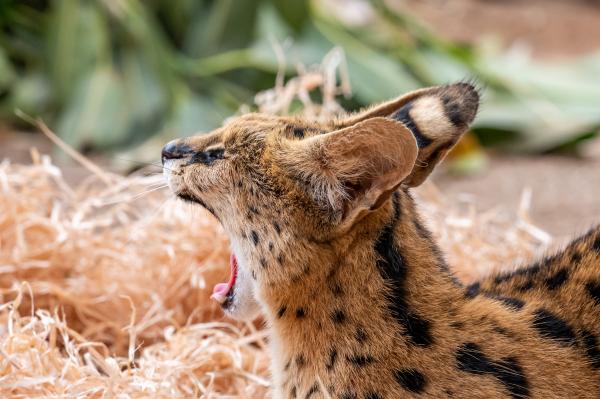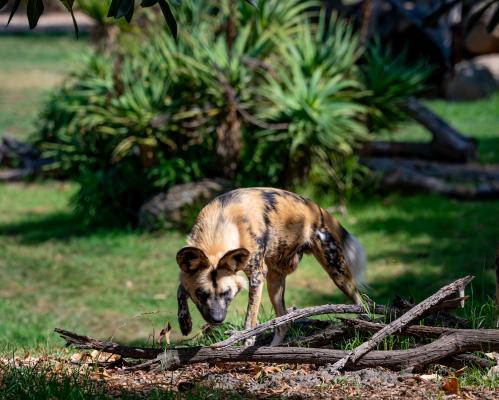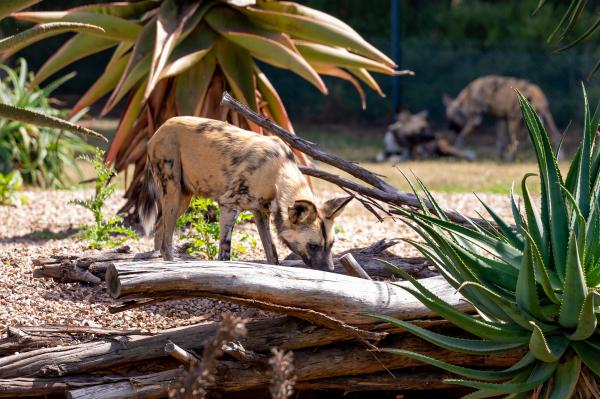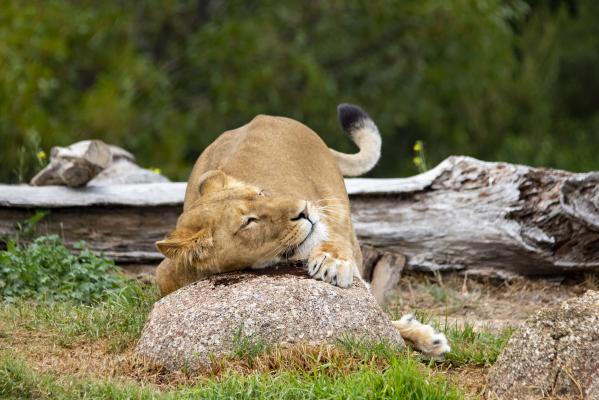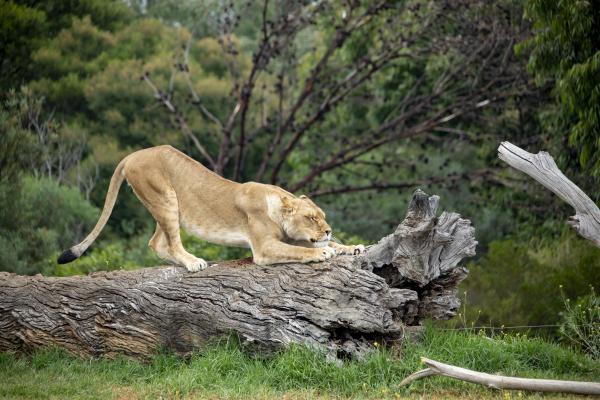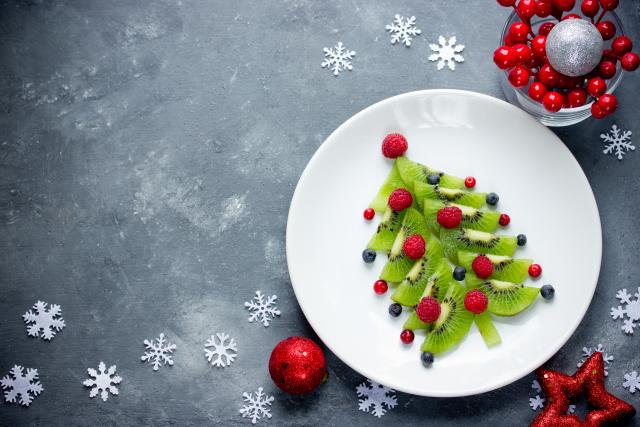Werribee Open Range Zoo keepers are encouraging the resident animals to follow their noses by introducing some interesting, unusual and enriching scents to their habitats.
Just like humans, mental and physical stimulation are critical to the wellbeing of animals, so keepers are providing scents such as vegemite, coffee and smelly gorilla bedding to various animals to encourage their natural investigatory behaviours.
Acting African river train life sciences manager Ben Gulli says the new smells encourage the animals to engage with their habitats in new and novel ways and also incite behaviours such as vocalisations and play.
“Our aim with any enrichment is to encourage the animals in our care to exhibit natural wild behaviours or to reinforce trained behaviours which empower them to be active participants in their own healthcare,” Mr Gulli said.
“Scent enrichments – such as coffee grounds smeared over logs in the Lion habitat, paths of drizzled vegemite and water solution for the African wild dogs, or gorilla bedding piles assembled for the Servals – stimulate investigatory behaviours but also promote play, an important indicator of positive welfare.”
The fragrant enrichments can also be adapted to enrich the lives of domestic cats living indoors.
Mr Gulli says that while cats are a fantastic family pet, keeping them indoors or supervising outdoor activity helps protect native wildlife.
“Cats are incredibly skilled hunters, and with approximately 46 per cent of Australia’s threatened species found in cities and towns, roaming cats can have a serious impact on the wildlife who visit our backyards.”
Physical enrichments, such as toys and feeding puzzles, are essential to keep an indoor cat physically and mentally active.
Introducing a scent enrichment, such as catnip, can be a great alternative that doesn’t rely on a food reward.
Plants that are cat-safe include cat grass (oat or barley), thyme, dill, basil, cinnamon, jasmine, camellia and spider plants.
A cardboard box filled with dried leaves can also provide scent and physical enrichment.
It is important to avoid toxic plant species, such as members of the lily family.
Mr Gulli suggests simple adaptations to the home environment can also have a huge positive impact on an indoor cat’s welfare.
He suggests creating platforms at different levels to encourage physical activity and providing increased choice for cats by allowing them to explore more areas indoors.
Zoos Victoria’s and RSCPA Victoria’s “Safe Cat, Safe Wildlife” campaign provides cat owners with advice and support to keep their cat in the home environment, because a cat’s needs, including exercise, enrichment, rest, healthy diet and companionship, can be readily provided indoors or within secure outdoor enclosures.
Discover ways to enrich your domestic cat at www.safecat.org.au.
Zoo members and visitors are reminded that all tickets to the zoo must be pre-booked at zoo.org.au and asked to follow the current COVIDSafe directions at www.coronavirus.vic.gov.au

